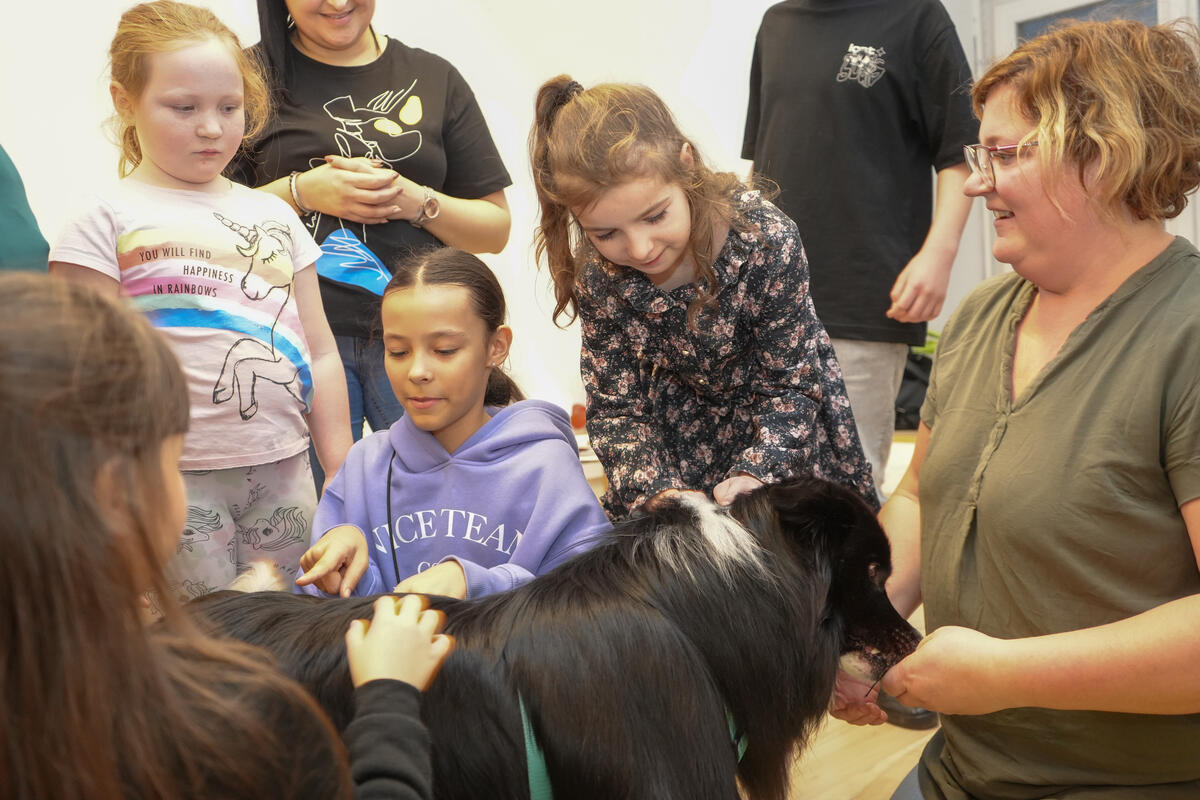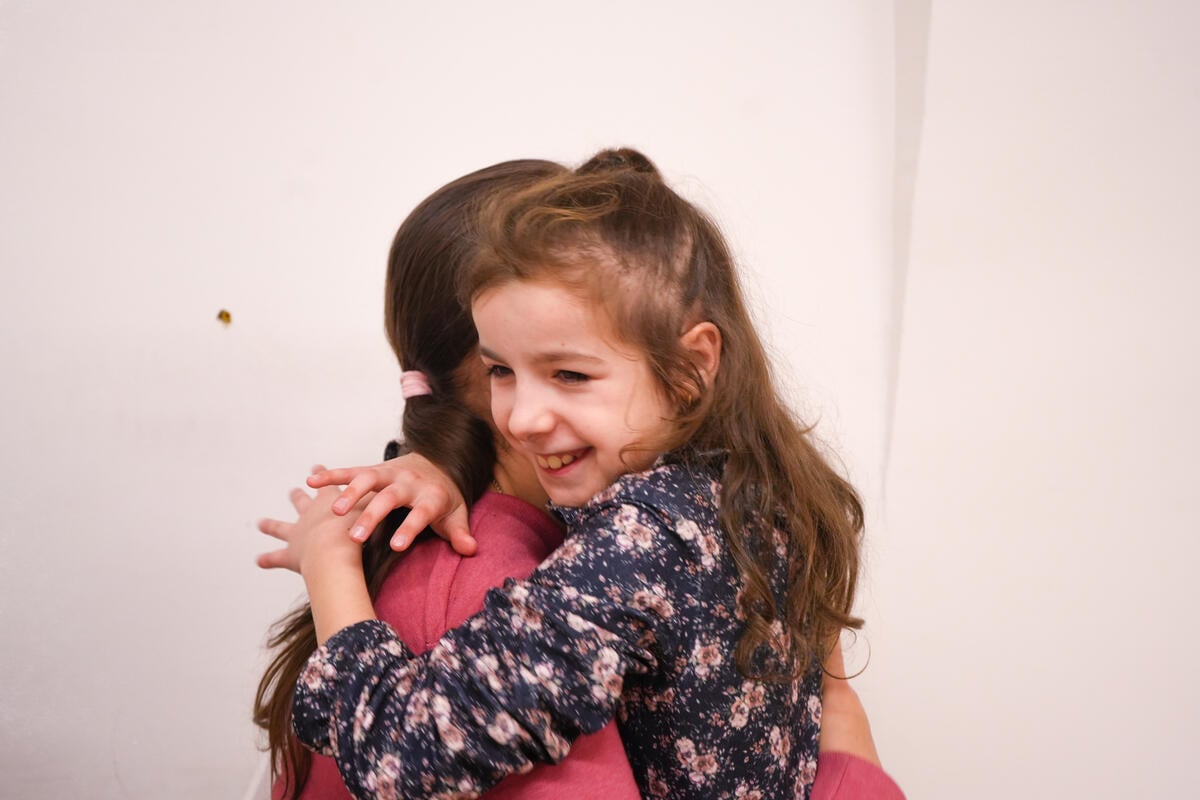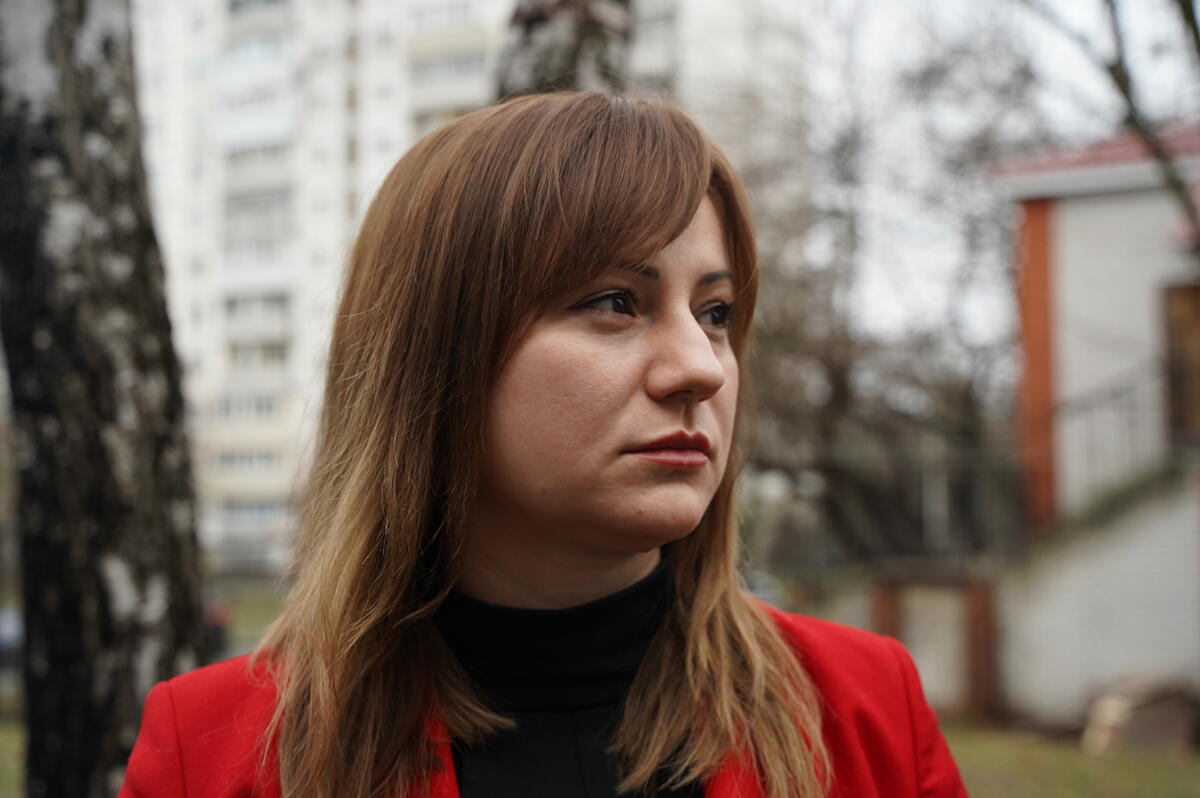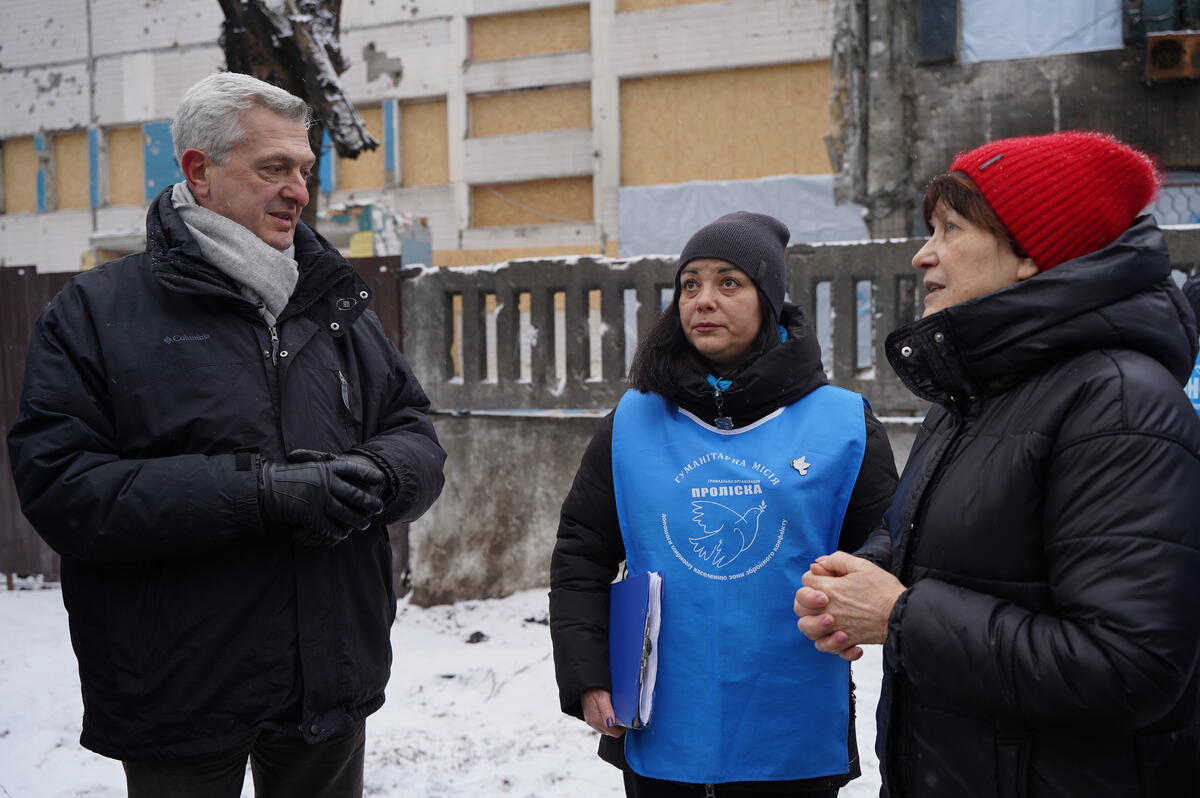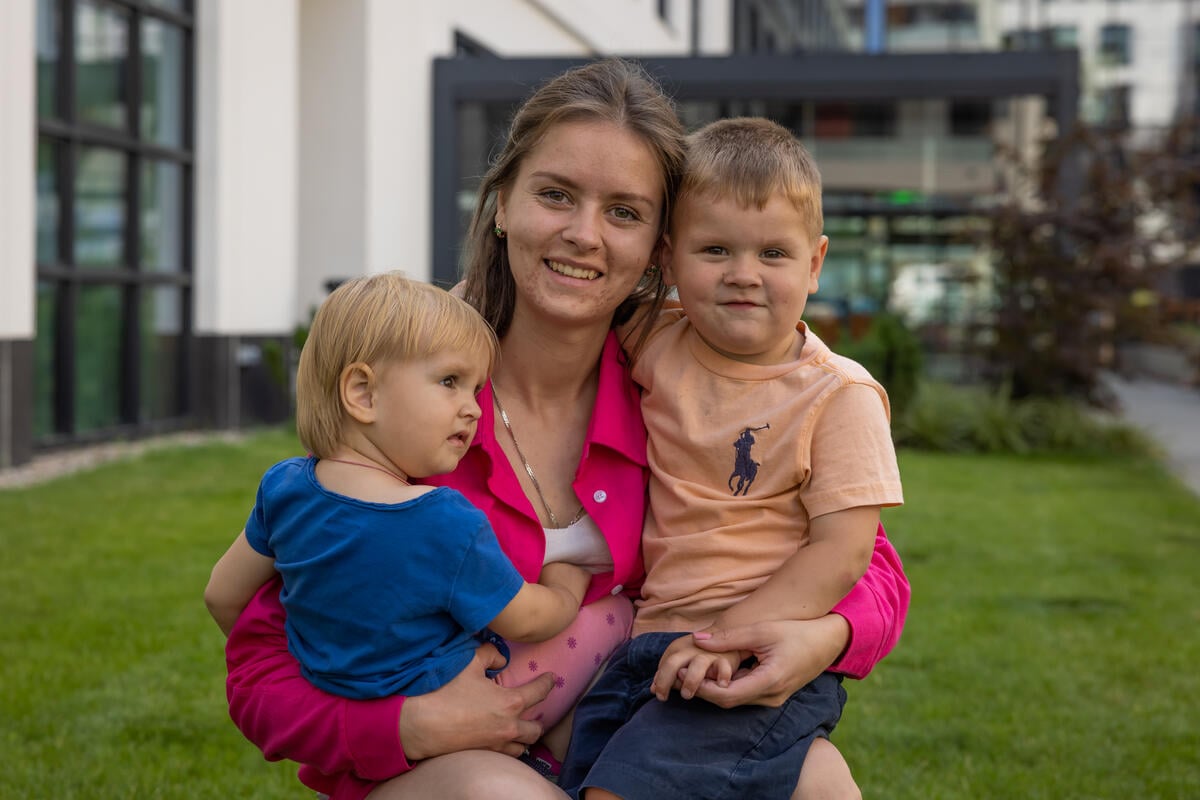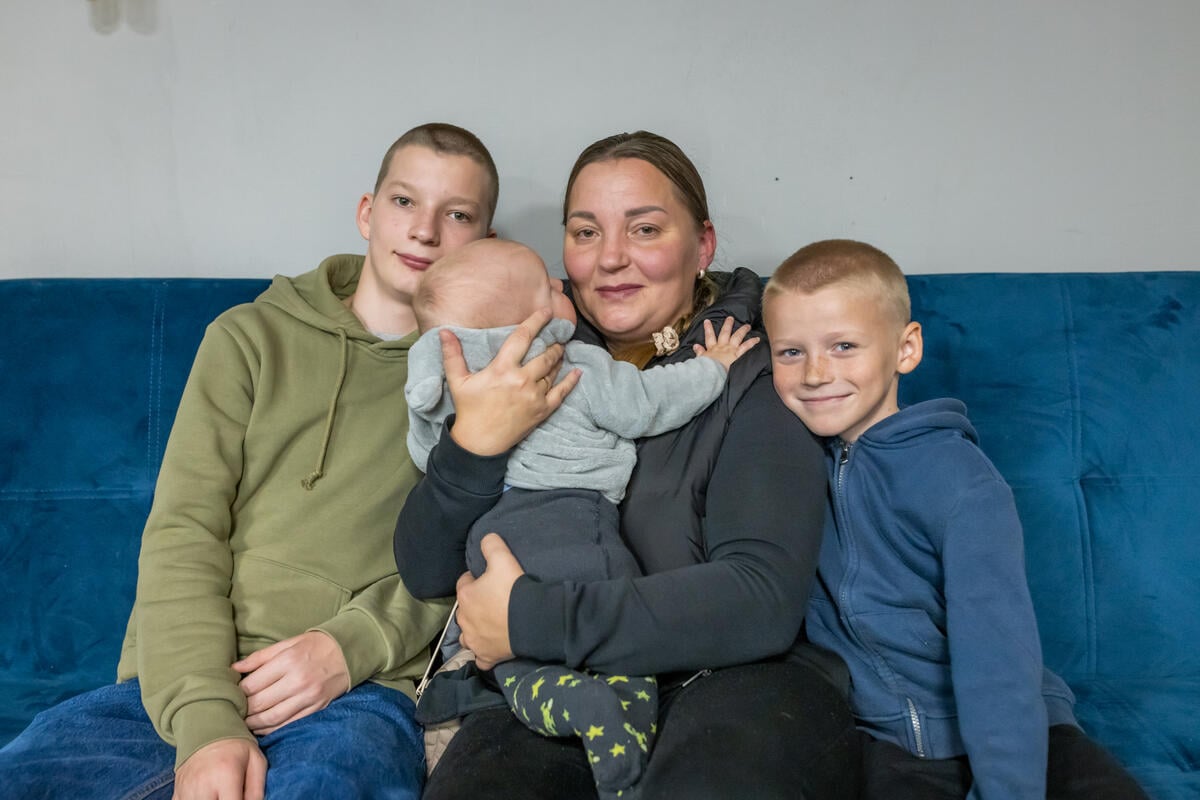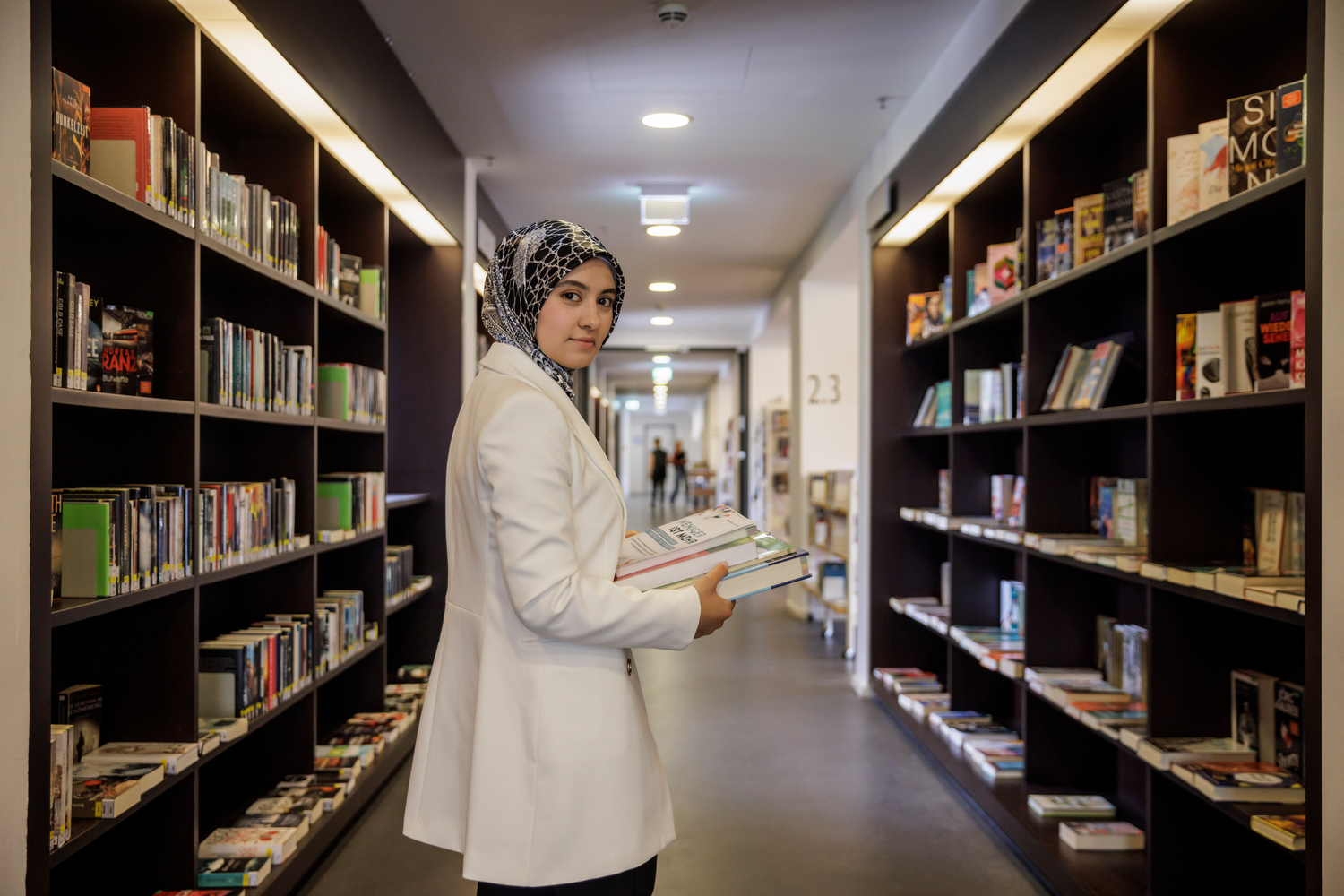Ukrainian refugees relieve stress with a support dog named Noir
Ukrainian refugees relieve stress with a support dog named Noir
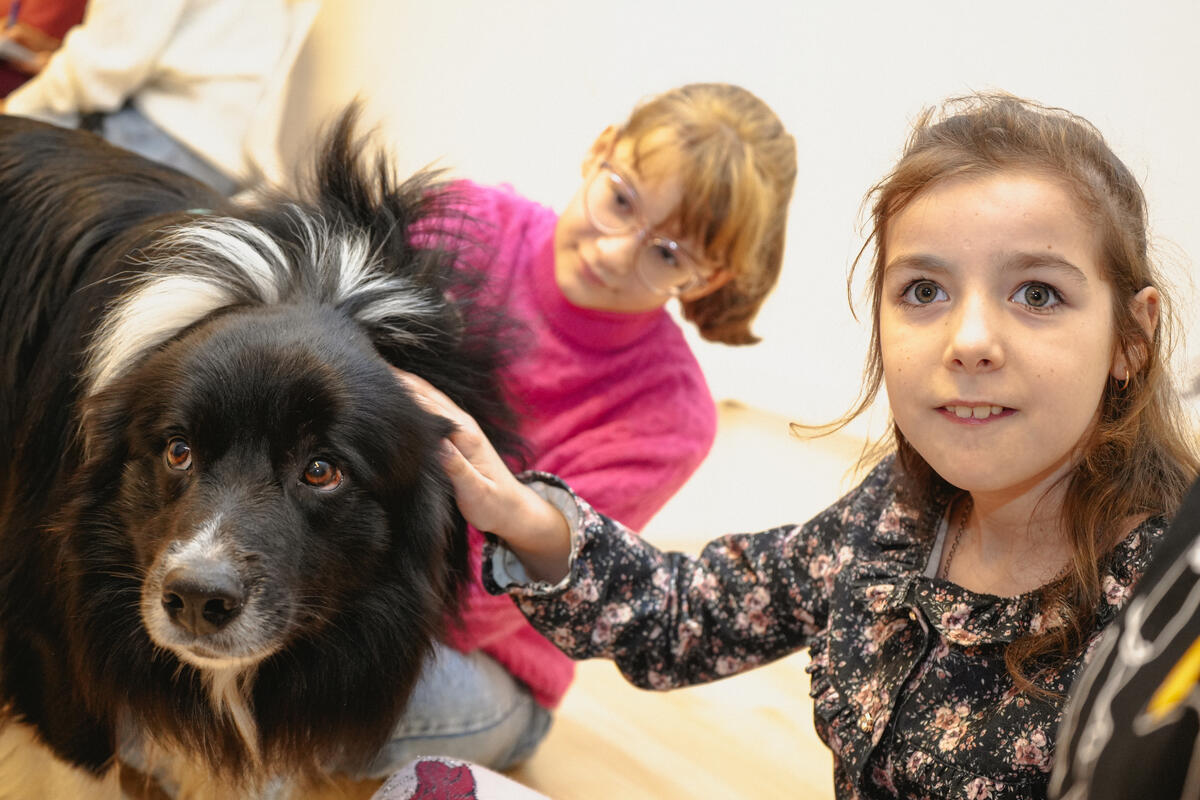
Nine-year-old Maria was distraught when she had to abandon her beloved dog Sharik as her family fled the war in Ukraine earlier this year. Now, at a community centre in the Hungarian capital Budapest, Maria and other Ukrainian refugee children are taking part in a fun-filled therapy session with an emotional support dog called Noir.
Maria has special needs and difficulty speaking, but the joy on her face needs no words as she strokes the gentle black Border Collie.
“Noir is specially trained to calm the kids,” says dog handler Tímea Ádány from local refugee-led organization Next Step. Animal therapy is among various relaxing activities on offer at the Budapest Helps! Info and Community Centre, a joint venture between the Budapest Municipality, the UN Refugee Agency (UNHCR) and the International Organization for Migration (IOM).
“Being with the dog is so good for Maria,” says her mother Liudmyla, who came to Hungary in August with her two daughters from the central Ukrainian region of Vinnytsia. “We never thought we would live to see this war. We’re trying to hold on here. It’s not easy.”
As the war grinds on into its tenth month, psychotherapists are concerned for the mental health and well-being of refugees, often separated from loved ones, sometimes bereaved, and all facing an uncertain future.
Therapists from the Cordelia Foundation, a non-governmental organization and UNHCR partner that provides mental and social support to victims of trauma, are visiting shelters around the country and have already helped over 400 refugees, suffering from various degrees of depression or anxiety.
“At the beginning, we didn’t really meet people coming from the front lines. So, their trauma was mostly the threat of danger. As the war went on, more and more people arrived from regions of actual fighting and their reports were staggering – loss of family members, friends, massive physical trauma, living in constant insecurity and existential fear,” says the psychiatrist Dr. Lilla Hárdi, the Cordelia Foundation’s medical director.
Recommended treatments include individual or group therapy, as well as creative and physical activities.
From the very first days of the war, Hungary opened its borders to hundreds of thousands of refugees from Ukraine and there are now over 32,000 Ukrainians who have applied for Temporary Protection status, allowing them to stay longer term. UNHCR has responded with emergency help for winter, as well as increasing information and referral to essential services such as healthcare and legal aid.
In Hungary, UNHCR is working with partners to provide services beyond the material, including ways to help heal refugees’ trauma. The Budapest Helps! community centre is visited by around 200 people a week, with interest growing as more options are added, from a creche to language classes, yoga and even a Ukrainian choir.
Coordinating it all for UNHCR is Yulia Morozova, who was an event organizer back in Ukraine’s Dnipro region before she too came to Budapest in March as a refugee.
“Once a person has a roof over their heads, they want to rise to a higher level of self-realization,” she says. “It is good that we Ukrainians can organize and unite ourselves, holding onto our roots, speaking our own language, finding new friends and mutual support.”
"It looks like we'll be getting a dog now!"
Meanwhile, back in the room with support dog Noir, the atmosphere has shifted from calm to thrilled excitement. Once the children get used to Noir, handler Tímea encourages them to play with the specially trained collie, encouraging him do circus tricks in exchange for biscuits.
The parents look on, relieved to see their kids happy for the first time in a long time. Margarita from Odesa watches as her daughter Yulia, 11, runs around with Noir, laughing.
“It’s funny,” says Margarita. “We’re cat people really: we brought two cats with us from Ukraine. But ever since we came to Budapest, Yulia has kept saying she wants a dog. Perhaps it’s because she doesn’t have any friends here yet. It looks like we’ll be getting a dog now!”

